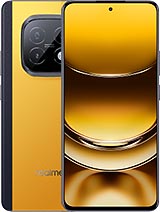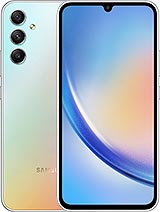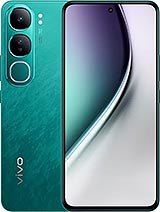Realme P3 alternatives
Tap above to see alternatives.
Vivo Y300 alternatives
Tap above to see alternatives.
1x2.3 GHz Cortex-A720s
3x2.2 GHz Cortex-A720s
4x1.8 GHz Cortex-A520s
2x2.2 GHz Cortex-A78
6x1.95 GHz Cortex-A55
8GB 128GB (UFS 3.1)
8GB 256GB (UFS 3.1)
8GB 256GB (UFS 2.2)
f/1.8, 27mm (wide), 1/2.88", 0.61µm, PDAF
2 MP
depth
f/1.8, (wide), 1/1.95", 0.8µm, PDAF
2 MP
f/2.4, (depth)
1080p@30/60/120fps
f/2.4, 23mm (wide), 1/3.09", 1.0µm
f/2.5, (wide)
SIM1: Nano, SIM2: Nano (Hybrid)
SIM1: Nano, SIM2: Nano
9 5G bands
n1, n3, n5, n8, n28, n40, n41, n77, n78
8 5G bands
n1, n3, n5, n8, n28, n38, n40, n41
In this performance comparison, the Realme P3 with its Qualcomm Snapdragon 6 Gen 4 (4nm) performs better than the Vivo Y300 with the Qualcomm Snapdragon 4 Gen 2 (4nm), thanks to superior chipset efficiency.
Realme P3 launched with Android 15 and will receive updates until Android 17, whereas Vivo Y300 launched with Android 14 and will get Android 16. Realme P3 will get security updates until 2028 (approx. 3 years), while Vivo Y300 is supported till 2027.
Both Realme P3 and Vivo Y300 feature AMOLED displays, offering vibrant colors and deeper blacks. Both smartphones offer the same 120 Hz refresh rate. Realme P3 also boasts a brighter screen with 2000 nits of peak brightness, enhancing outdoor visibility. Both phones have the same screen resolution.
Realme P3 comes with a larger 6000 mAh battery, which may offer longer usage on a single charge. Vivo Y300 also supports faster wired charging at 80W, compared to 45W on Realme P3.
Realme P3 offers better protection against water and dust with an IP69 rating.
¹ Scores can vary even with the same chipset due to RAM, thermals, and software optimization.












